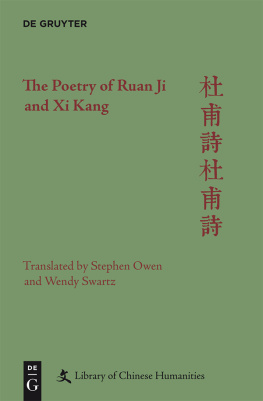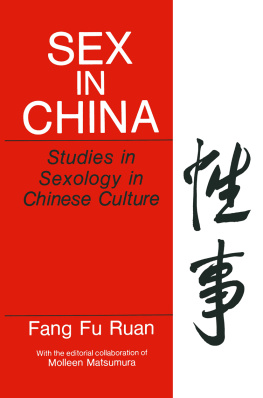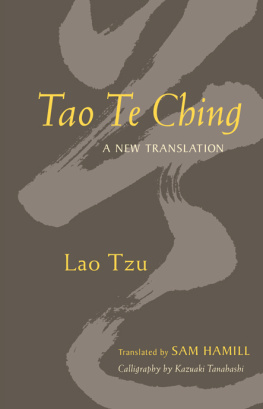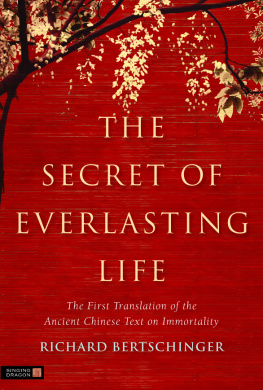Table of Contents
Guide

The Poetry of Ruan Ji and Xi Kang
Library of Chinese Humanities
Editors
Sarah M. Allen, Wellesley College
Paul W. Kroll, University of Colorado
Christopher M. B. Nugent, Williams College
Stephen Owen, Harvard University
Anna M. Shields, Princeton University
Xiaofei Tian, Harvard University
Ding Xiang Warner, Cornell University
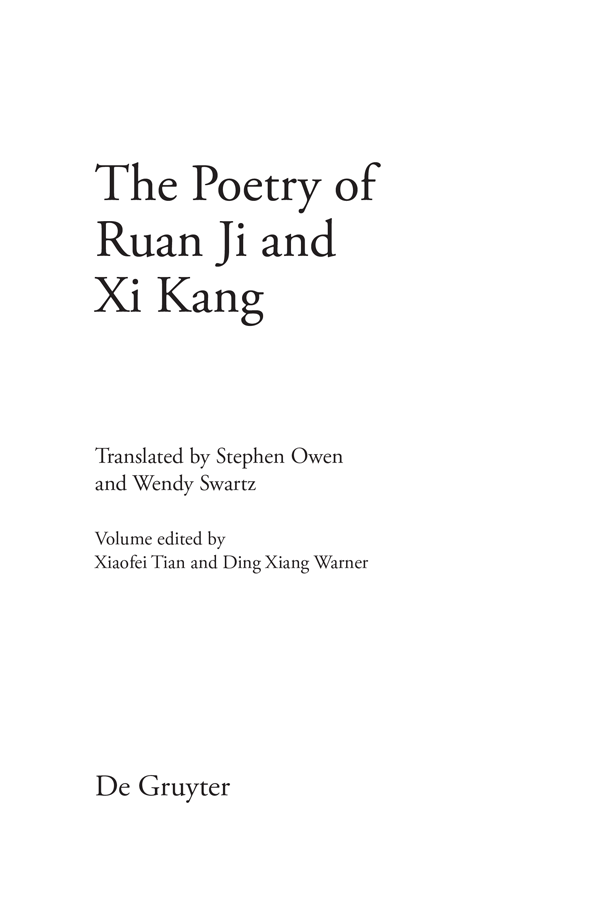
This book was prepared with the support of the Andrew W. Mellon Foundation.
ISBN 978-1-5015-1185-1
e-ISBN (PDF) 978-1-5015-0387-0
ISSN 2199-966X

This work is licensed under the Creative Commons Attribution-NonCommercial-NoDerivs 3.0 License. For details go to http://creativecommons.org/licenses/by-nc-nd/3.0/.
Library of Congress Cataloging-in-Publication Data
A CIP catalog record for this book has been applied for at the Library of Congress.
Bibliografische Information published by the Deutsche Nationalbibliothek
The Deutsche Nationalbibliothek lists this publication in the Deutsche Nationalbibliografie; detailed bibliographic data are available in the Internet at http://dnb.dnb.de.
2017 Stephen Owen and Wendy Swartz, published by Walter de Gruyter Inc., Boston/Berlin
The book is published with open access at www.degruyter.com.
www.degruyter.com
Part 1: The Poetry of Ruan Ji (210263)
Translated by Stephen Owen
Volume edited by Xiaofei Tian
Introduction
Ruan Jis Life and Times
Ruan Ji (210263) was born at the beginning of the final decade of the great Han dynasty (206 BCE to 220 CE). The Eastern Han Emperor Xian (r. 189220) continued to reign, but had long since conceded the power to rule to Cao Cao (155220), whose political and military genius reunified the disintegrating empire in North China. Although Wu in the south and Shu in the west eluded Cao Caos grasp, the population and agricultural base of North China was still, by far, the greater part of the old Han empire.
Ruan Jis father, Ruan Yu (d. 212), had served Cao Cao since Cao Caos early rise to power. Until joining the circle around Cao Cao, the Ruans were a provincial family of little distinction; Ruan Yu held a series of minor posts, but enjoyed fame as a writer, who drafted letters for Cao Cao. For this talent Cao Pi (187226), Cao Caos heir, included Ruan Yu in the company of the Seven Masters of the Jianan Reign . Ruan Yu died when Ruan Ji was only two. Eight years later, in 220, Cao Cao himself passed away; Cao Pi then quickly did away with the fiction of the Han dynasty and declared himself emperor of a new dynasty, the Wei . Cao Cao was posthumously made its first emperor, Wei Wudi .
Ruan Jis mature life is a skeleton of facts surrounded by a large corpus of anecdotes of uncertain reliability. His works later came to be read in the context of an interpretive tradition lasting more than a millennium, but beginning centuries after Ruan Jis death. This interpretive tradition presumes to know Ruan Jis opinions regarding the tumultuous political events unfolding around him and has read Ruan Jis works almost exclusively as responses to those events. Thus the Ruan Ji we now see in contemporary scholarly and popular representations is a confabulation of distinct historical layers. Here I will try to disaggregate those layers, beginning with the skeleton of facts and the political events in the background of his life. We will then look at the anecdotes, and finally address the political interpretation of his works, which appears in full form almost five centuries after his death.
Cao Pi founded the Wei dynasty, but he had neither his fathers political nor military genius. He distrusted members of his close family, and appointed others to positions of political power. The formidable Wei army was under the control of Sima Yi (179251), one of his fathers best generals. Cao Pis brief reign of six years was followed by that of his son Cao Rui (r. 226239), who had even less talent for ruling than his father. It was in Cao Ruis reign that Ruan Ji reached adulthood, and it seems that early on Ruan Ji was wary of becoming involved with the factions forming in court. When Cao Rui died in the spring of 239, succession passed to his eight-year-old heir Cao Fang , with Sima Yi and a distant kinsman Cao Shuang acting as co-regents. Of Cao Ruis many follies, this may have been the worst, conjoining a courtier with close ties to the intellectual life of the capital with a powerful old general. After Cao Rui passed away, Cao Shuang soon ousted Sima Yi, who quietly retired to his estate and bided his time. Visited by He Yan (195249), a famous contemporary intellectual and advisor of Cao Shuang, Sima Yi put on a theatrical display of senescence, after which He Yan reported to Cao Shuang that the old general was no threat. This proved to be not the case. In 249 Sima Yi returned to the capital with his troops. Catching Cao Shuang unawares, Sima Yi slaughtered Cao Shuang, his entire family, and all his followers including He Yan.
The house Sima found itself riding the tiger and they rode it effectively, killing any opposition, real or supposed. For about fifteen years, Sima Yi and his two sons Sima Shi and Sima Zhao preserved the fiction of the Wei dynasty under three puppet emperors, until at last, in 265, Sima Yis grandson, Sima Yan (236290), deposed the last Wei emperor and founded the Jin dynasty (265420). After only forty-five years the Wei dynasty ended as it began, with the deposition of a puppet emperor.
Ruan Jis readers have largely concerned themselves with what Ruan Ji was thinking in these turbulent times. That is a question that cannot be answered with a modicum of certainty. The better question is: what was Ruan Ji doing? First, he clearly avoided any association with Cao Shuang when he was in power. Second, every post he accepted was under the Sima family, especially Sima Zhao, who favored him and protected him. Shortly before Ruan Jis death, Sima Zhao, enfeoffed as Duke of Jin, was offered elevation to Prince of Jin , which would prepare the way for his possible succession to the imperial throne. As was proper, Sima Zhao repeatedly demurred. An anecdote has it that one night Ruan Ji was roused perhaps from a drunken stupor to write a letter urging Sima Zhao to accept the position of Prince. Ruan Ji produced a brilliantly argued piece in a single draft. We can be reasonably sure that Sima Zhao did not need to have his mind actually changed by such a persuasion; rather, he needed such a letter as a public document of such weight that it might seem to have changed his mind. When Ruan Ji died in 263, still during the Wei dynasty, he died a loyal servant of the house Sima. The Simas were a bloody lot, but for a time they held the empire together. After the first reigning Jin emperor, Sima Yan, passed away in 290, the stability of the dynasty collapsed swiftly and disastrously.
The dominant intellectual fashion of Ruan Jis day was arcane learning, xuanxue , and Ruan Ji was very much a part of it. From a modern perspective arcane learning was a disparate aggregate of interests and values: serious philosophical thought, fashionable mumbo jumbo, legends of immortals, strange beasts, and worlds that lay beyond the constraints of gravity, mortality, society, and other inconveniences of this world. The distinction of the aficionados of arcane learning was displayed by a theatrical eccentricity and aggressive disregard for the norms of social behavior. Closely related to some of these interests was a technology of bodily self-transformation, involving breathing techniques, herbs, and cinnabar. If these various concerns seemed to Ruan Jis contemporaries to belong together, their apparent unity may have been negative: all were restricted to the interests of one particular practitioner and militantly excluded political, social, and familial values.

